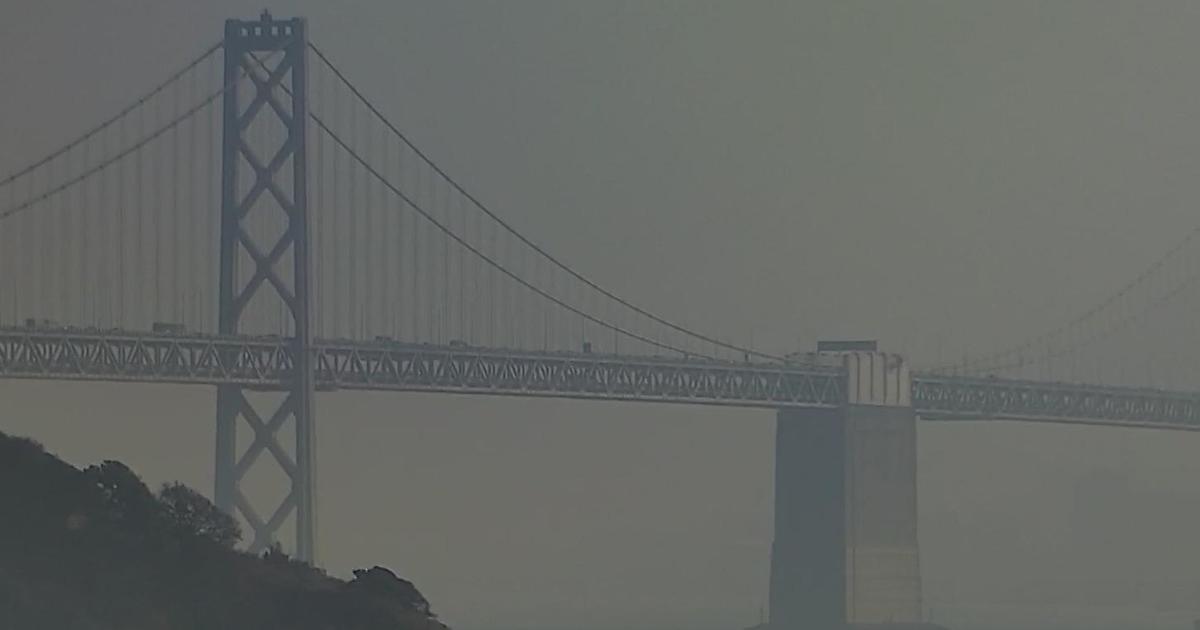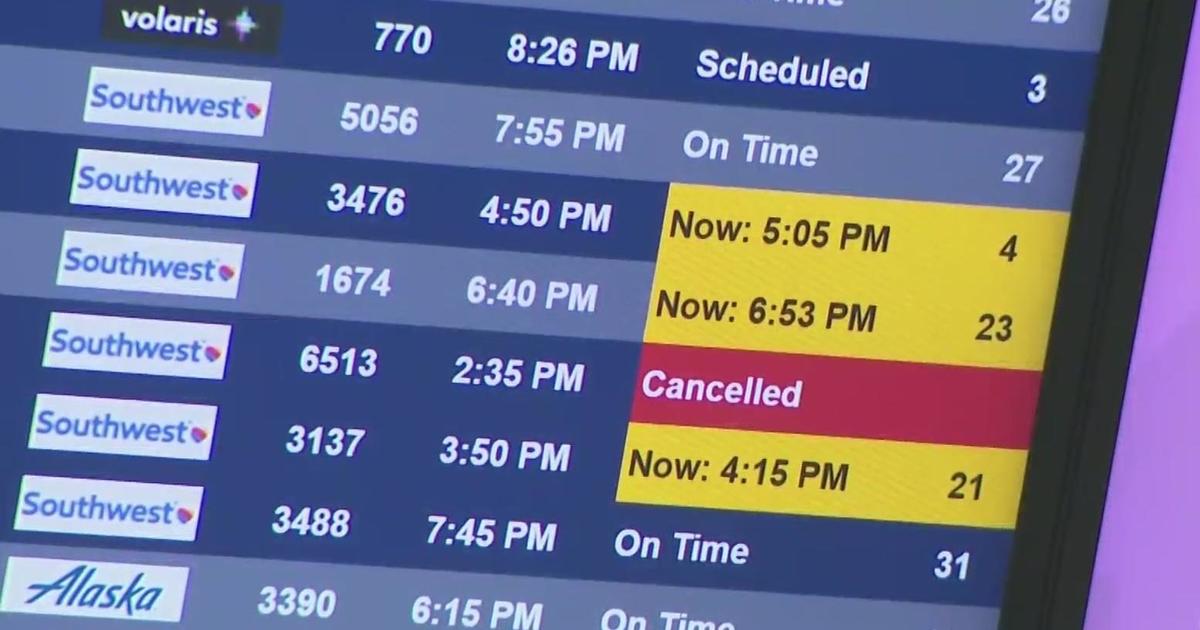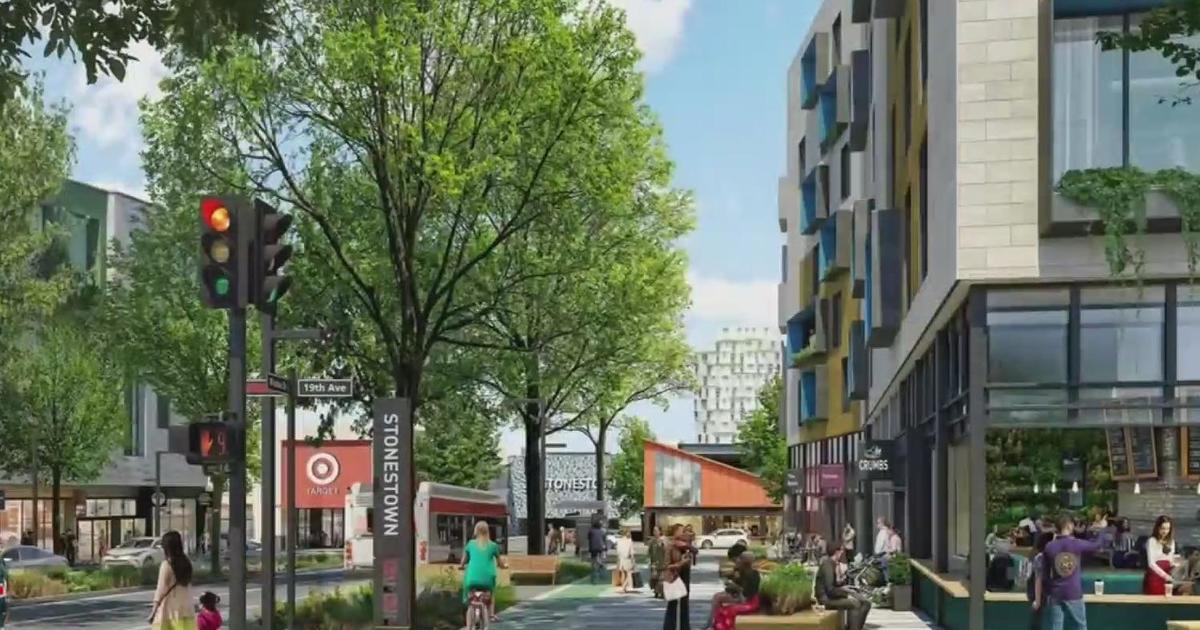Regulators Fail To Impose Emissions Cap On Bay Area Oil Refineries
RICHMOND (KPIX 5) -- Bay Area air quality regulators wanted to impose emission limits on refineries.
But the plan would have let some refineries pump 25 percent more emissions into the air than they currently do.
Efforts to set the nation's first ever cap on refinery pollution levels ran into a buzz saw of opposition Wednesday, with both Big Oil and Big Environmentalists opposing it.
Solano County Supervisor Shirlee Zane said, "I was really disappointed. We have been working on this for five years."
The new rules would have capped greenhouse emissions at all five Bay Area refineries -- but still allowed room for work already permitted to continue.
Oil companies didn't want any cap.
Bob Brown with the Western States Petroleum Association said, "This should be dealt with at the state level not here."
Environmentalist said the caps, which were rolled back in recent weeks out of fear of lawsuits, were a huge step back.
Jed Holtzman with the group 350 SF held up two big books before the board and said, "Both of these books are full of your commitments to reduce emissions."
The role of gas cars and gas refineries has long been a hot topic in California, often pitting health and environmental concerns against concerns about jobs and costs.
Shoshana Wechsler with the Sunflower Alliance said, "There is no vested right to pollute in California."
Brown said, "This could mean more prices at the pump."
While it was clear that officials were ready to take the jump -- after hearing from some 50 people who opposed the rules -- the majority at the air board opted not to take the plunge, at least not now.
Contra Costa Supervisor John Gioa said, "The fact that everyone was opposed was proof that the process was broken."
Alameda County Supervisor Scott Haggerty said, "We had an opportunity to limit emissions here in the Bay Area and I think we failed."
One thing is clear: the fight is not over.
Holtzman said, "Kicking the can down the road is not going to change the calculus, the caps need to be set at current levels or else they're permitting huge emissions in the Bay Area."
Brown said, "We still have serious concerns about these caps being done at the local level."
Brown said they are going to keep fighting.
Holtzman said, "I don't think anyone here is happy with the outcome."
The outcome will be revisited in the coming months, but the state may also come out with a cap.
A lot of people in Richmond don't know what to think. They were happy to hear about the cap and disappointed to learn no emissions cap was put into place.
Tish Hernandez is a mother of 3-year-old twins and lives in Richmond.
She says her daughters have asthma and while she's not sure if that's related to the Chevron refinery, living nearby, she's always on edge.
Hernandez said, "It's like a little concerning because I don't know if a fire is going to break out at any time or anything is going to happen where we need to evacuate."
Given Chevron's history there, including the big fire of 2012 that sent thousands to the hospital, there is still some distrust in the community.
While most of the people we talked to there say they applaud the effort to put caps on refinery emissions, they are also confused by the proposal to allow the refineries to increase emissions.
Richmond resident Erik Morris said, "They're going to increase it on one hand and try to cap it. That doesn't sound like they're solving the problem, does it?"
Laura Gracia with Communities for a Better Environment said, "Yeah, no, people are very frustrated. And very confused. There's been a lot of talk about how this is going to be a national landmark."
Gracia says the people in the neighborhood are not happy with how the air quality board seemed to disregard the voices of the folks who live closest to the plant.
"You know, all of these changes were made last minute without community approval or consent. But we are very glad the board recognized that," Gracia said.
Morris said, "They're doing something to be politically correct but on the same token, we're still going to be suffering with the quality of the air ... if they're going to put 25 percent more emissions in the air, then how is that improving our lives?"
He said the "Bottom line is for us to quit catering to all these people with all the money and do what's best for the community."
Environmental justice groups say they just want to make sure their voices are heard as this conversation continues.



